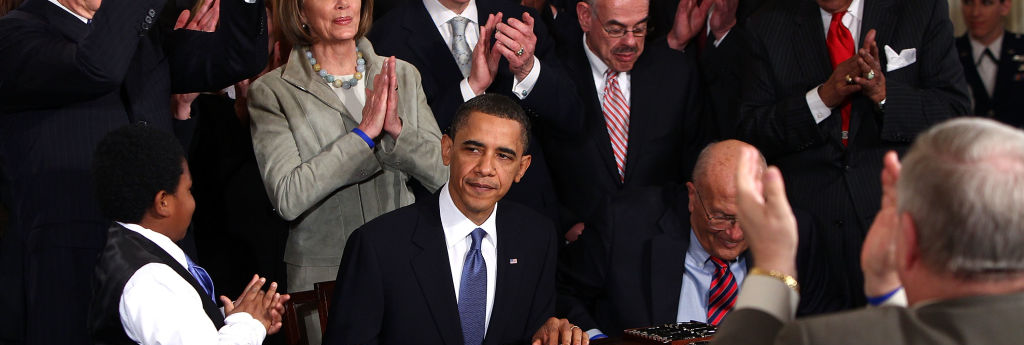The Affordable Care Act, a signature healthcare law signed by President Barack Obama in 2010, marks its tenth anniversary on March 23. A new YouGov Poll shows that attitudes toward Obama’s healthcare law have grown more positive over the years, even as President Donald Trump and Republicans have fought to dismantle it.
On the day Trump was sworn into office, he signed an executive order allowing officials to defer enacting portions of the Affordable Care Act. That delay granted the Republican-led Congress time to fulfill a campaign promise of repealing Obamacare and replacing it with something better. In 2017, YouGov data indicated that more Americans (36%) wanted to see the Affordable Care Act repealed, rather than expanded (31%) or maintained (17%).
And while Republicans controlled both the US House and Senate in 2017, they ultimately failed to approve a bill that would repeal or replace Obamacare. Throughout the Trump presidency, Republicans have succeeded in chipping away at many key components of the government healthcare plan—but it still remains the law of the land.
Today, American opinion has flipped in favor of Obamacare. A plurality of Americans wants to see it expanded (37%), not repealed (32%). About two-thirds of Democrats (65%) and one in 10 (10%) Republicans believe the healthcare law should be expanded.
Who America Trusts on Healthcare Amid COVID-19
The healthcare law’s tenth anniversary arrives as America battles COVID-19, a pandemic that has exposed the nation’s shortage of medical resources. In addition, more Americans over the last few weeks have faced layoffs and are anticipating a coronavirus-sparked recession. America’s healthcare system, and which party is best to lead the nation through the pandemic, has become a center point of political debates.
The YouGov poll—conducted March 16-18—indicates that a plurality of Americans (47%) trust the Democratic Party to handle the problem of health care, while 38 percent trust the Republican Party. Even still, Americans are more uneasy than confident in the ability of President Trump (48% vs. 37%), former Vice President Joe Biden (45% vs. 32%), and Vermont Senator Bernie Sanders (44% vs. 27%) to deal wisely with the issue of healthcare.
About one-third (32%) of the general public views Obamacare as a success, or at least more of a success than a failure. About one-third (33%) see it as a complete failure or more of a failure than a success. The largest shift has come from Republicans. In 2013, about seven in 10 (71%) saw the Affordable Care Act as a “complete failure.” Today, the number of Republicans call it a complete failure is down to 34 percent, as Republicans view it less negatively overall.
The Popularity of Obamacare in Parts
The favorable shift could be, in part, because many of the individual parts of Obamacare are popular.
Most Americans today say health insurance companies should not be allowed to charge women higher premiums(79%), refuse to cover people with pre-existing conditions (77%), charge people higher premiums for pre-existing conditions (74%), place annual or lifetime limits on how much they will pay out for a person (66%), or charge people higher premiums if they don’t maintain health insurance coverage (65%).
In addition to a majority of Americans, a majority of Republicans support each of those components.
Where the Affordable Care Act is Headed
In today’s world, Americans aren’t content with the status quo system of healthcare. A plurality of US adults (43%) wants to add a public option to the current system of private health insurance. This would mean that more Americans could get government insurance, but only if they wanted it. Two in five (41%) Republicans support this plan, too.
About one-third (33%) of Americans want to see a Medicare for All plan that would end private health insurance. Young Americans and Democrats, in particular, are split between whether they would prefer Medicare for All or the addition of a public option to the existing healthcare system. Just a quarter (25%) of Americans say there should be no changes to the current system of private health insurance.










